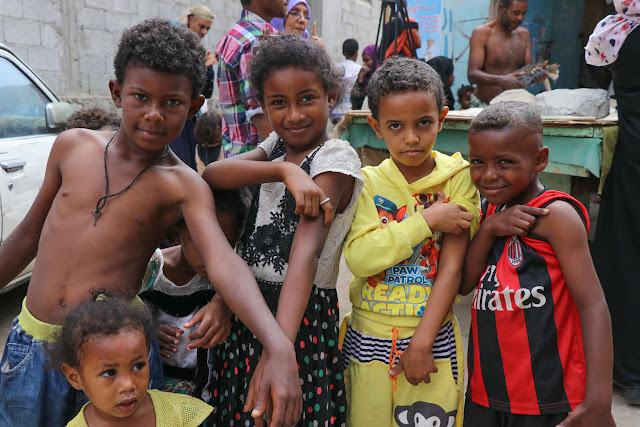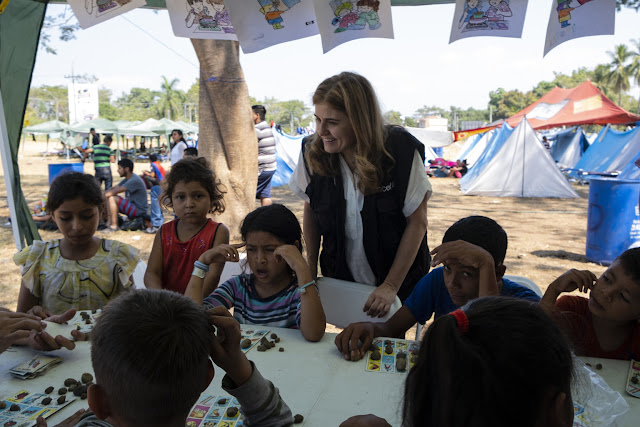 |
| A baby is being weighted and vaccinated in the health center of Gonzagueville, a suburb of Abidjan, in the South of Côte d'Ivoire. (CNW Group/Canadian Unicef Committee) |
UNICEF and the World Health Organization (WHO) have issued an urgent call to action to avert major measles and polio epidemics as COVID-19 continues to disrupt immunization services worldwide, leaving millions of vulnerable children at heightened risk of preventable childhood diseases.
- The two organizations estimate that US$655 million (US$400 million for polio and US$255 million for measles) are needed to address dangerous immunity gaps in non-Gavi eligible countries and target age groups.
"COVID-19 has had a devastating effect on health services and in particular immunization services, worldwide," commented Dr Tedros Adhanom Ghebreyesus, WHO Director-General. "But unlike with COVID, we have the tools and knowledge to stop diseases such as polio and measles. What we need are the resources and commitments to put these tools and knowledge into action. If we do that, children's lives will be saved."
"We cannot allow the fight against one deadly disease to cause us to lose ground in the fight against other diseases," said Henrietta Fore, UNICEF Executive Director. "Addressing the global COVID-19 pandemic is critical. However, other deadly diseases also threaten the lives of millions of children in some of the poorest areas of the world. That is why today we are urgently calling for global action from country leaders, donors and partners. We need additional financial resources to safely resume vaccination campaigns and prioritize immunization systems that are critical to protect children and avert other epidemics besides COVID-19."In recent years, there has been a global resurgence of measles with ongoing outbreaks in all parts of the world. Vaccination coverage gaps have been further exacerbated in 2020 by COVID-19. In 2019, measles climbed to the highest number of new infections in more than two decades. Annual measles mortality data for 2019 to be released next week will show the continued negative toll that sustained outbreaks are having in many countries around the world.
At the same time, poliovirus transmission is expected to increase in Pakistan and Afghanistan and in many under-immunized areas of Africa. Failure to eradicate polio now would lead to global resurgence of the disease, resulting in as many as 200,000 new cases annually, within 10 years.
New tools, including a next-generation novel oral polio vaccine and the forthcoming Measles Outbreak Strategic Response Plan are expected to be deployed over the coming months to help tackle these growing threats in a more effective and sustainable manner, and ultimately save lives. The Plan is a worldwide strategy to quickly and effectively prevent, detect and respond to measles outbreaks.
 |
| UNICEF & WHO's Call for Emergency Action to Avert Major Measles and Polio Epidemics - front cover |
Generous support from Gavi, the Vaccine Alliance, has enabled previous access to funding for outbreak response, preventive campaigns and routine immunization strengthening, including additional support for catch-up vaccination for children who were missed due to COVID-19 disruptions in Gavi-eligible countries. However, significant financing gaps remain in middle-income countries which are not Gavi-eligible. This call for emergency action will go to support those middle-income countries that are not eligible for support from Gavi.
SOURCE: Canadian Unicef Committee









































